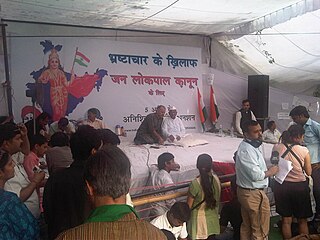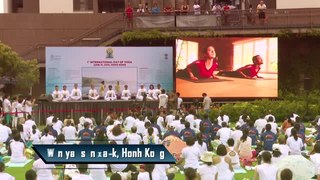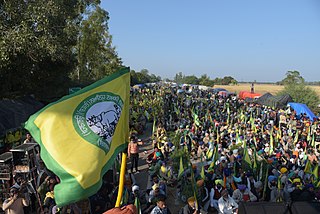This article is about transport in Oman.

The fat acceptance movement is a social movement which seeks to eliminate the social stigma of obesity. Areas of contention include the aesthetic, legal, and medical approaches to fat people.

"Junk food" is a term used to describe food that is high in calories from macronutrients such as sugar and/or fat, and possibly sodium, making it hyperpalatable, but with insufficient dietary fiber, protein, or micronutrients such as vitamins and minerals. It is also known as HFSS food. The term junk food is a pejorative dating back to the 1950s. Many variations of junk food can be easily found in most supermarkets and fast food restaurants. Due to easy accessibility, commercially-oriented packaging, and often-low prices, people are most likely to consume it.

Sibutramine, formerly sold under the brand name Meridia among others, is an appetite suppressant which has been discontinued in many countries. It works as a serotonin–norepinephrine reuptake inhibitor similar to a tricyclic antidepressant. Until 2010, it was widely marketed and prescribed as an adjunct in the treatment of obesity along with diet and exercise. It has been associated with increased cardiovascular diseases and strokes and has been withdrawn from the market in 2010 in several countries and regions including Australia, Canada, China, the European Union, Hong Kong, India, Mexico, New Zealand, the Philippines, Thailand, the United Kingdom, and the United States. However, the drug remains available in some countries.
The Academy of Nutrition and Dietetics is a 501(c)(6) trade association in the United States. With over 112,000 members, the association claims to be the largest organization of food and nutrition professionals. It has registered dietitian nutritionists (RDNs), nutrition and dietetics technicians registered (NDTRs), and other dietetics professionals as members. Founded in 1917 as the American Dietetic Association, the organization officially changed its name to the Academy of Nutrition and Dietetics in 2012. According to the group's website, about 65% of its members are RDNs, and another 2% are NDTRs. The group's primary activities include providing testimony at hearings, lobbying the United States Congress and other governmental bodies, commenting on proposed regulations, and publishing statements on various topics pertaining to food and nutrition.

Prajwala is a non-governmental organization based in Hyderabad, India, devoted exclusively to eradicating prostitution and sex trafficking. Founded in 1996 by Ms. Sunitha Krishnan and Brother Jose Vetticatil, the organization actively works in the areas of prevention, rescue, rehabilitation, re-integration, and advocacy to combat trafficking in every dimension and restore dignity to victims of commercial sexual exploitation.

Obesity has been observed throughout human history. Many early depictions of the human form in art and sculpture appear obese. However, it was not until the 20th century that obesity became common — so much so that, in 1997, the World Health Organization (WHO) formally recognized obesity as a global epidemic and estimated that the worldwide prevalence of obesity has nearly tripled since 1975. Obesity is defined as having a body mass index (BMI) greater than or equal to 30 kg/m2, and in June 2013 the American Medical Association classified it as a disease.

India–Oman relations are foreign relations between the Republic of India and the Sultanate of Oman. India has an embassy in Muscat, Oman. During British rule in India, Bombay presidency controlled Oman for the British Empire. An Indian consulate was opened in Muscat in February 1955 which was upgraded to a consulate general in 1960 and later into a full-fledged embassy in 1971. The first ambassador of India arrived in Muscat in 1973. Oman established its embassy in New Delhi in 1972 and a consulate general in Mumbai in 1976. India and Oman have had trade and people-to-people ties for several millennia. Oman is home to a large Indian expatriate community and for Oman, India is an important trading partner. Politically, Oman has been supportive of India's bid for permanent membership of the United Nations Security Council.

Saarang is the annual social and cultural festival of IIT Madras. It is a 5-day long festival usually in the second week of the year. Founded in 1974, Saarang is the second oldest college festival in India. It was started in the name of 'Mardi Gras' with a small number of quizzes and music events. It adopted the name 'Saarang' and grew with the help of corporate sponsorship, collaboration with large-scale event organizers and international artists.

The 2011 Omani protests were a series of protests in the Persian Gulf country of Oman that occurred as part of the revolutionary wave popularly known as the "Arab Spring".

The Indian anti-corruption movement, popularly known as Anna Andolan, was a series of demonstrations and protests across India that began in 2011 and was intended to establish strong legislation and enforcement against perceived endemic political corruption. The movement was named as one of the "Top 10 News Stories of 2011" by Time magazine.

Muthoot Finance Ltd is an Indian financial corporation and the largest gold loan NBFC in the country. In addition to financing gold loans, the company offers other forms of loans, insurance and money transfer services, and sells gold coins. The company is headquartered in Kochi, Kerala and operates over 5000 branches throughout the country. Outside India, Muthoot Finance is established in the UK, the US, and the United Arab Emirates.

Vandana Luthra is an Indian entrepreneur and the founder of VLCC Health Care Ltd, a beauty and wellness conglomerate represented in Asia, the GCC and Africa. She is also the chairperson of the Beauty & Wellness Sector Skill Council (B&WSSC), an initiative that provides training under the Pradhan Mantri Kaushal Vikas Yojana schemes.

The International Day of Yoga is a day in recognition of Yoga, that is celebrated across the world annually on June 21, following its adoption by the United Nations in 2014. As Yoga exercises have shown immense benefits for physical and mental well-being, it was considered important by the UN to globally promote this wellness practice, which originated in ancient India.
Malini N. Menon is an Indian entrepreneur based in the United Arab Emirates. She is the Founder and managing director of IEDEA,, a business ideation and network facilitation agency engaged in the IP development of branded business events and PR initiatives that are focused on sustainable investor outreach and acquisition located in Jumeirah Lake Towers, under the DMCC Free Zone, Dubai, UAE.

The 2020–2021 Indian farmers' protest was a protest against three farm acts that were passed by the Parliament of India in September 2020. The acts, often called the Farm Bills, had been described as "anti-farmer laws" by many farmer unions, and politicians from the opposition who said that it would leave farmers at the "mercy of corporates" since the farmer-trader disputes were taken to SDM instead of judiciary. The protests demanded the creation of a minimum support price (MSP) bill, to ensure that corporates cannot control the prices. The Union Government, however, maintained that the laws would make it effortless for farmers to sell their produce directly to big buyers, and stated that the protests are based on misinformation. Related endemic legacy issues include farmer suicides and low farmer incomes. Despite India being largely self-sufficient in foodgrain production and having welfare schemes, hunger and nutrition remain serious issues, with India ranking as one of the worst countries in the world in food security parameters. Due to unfulfilled previous demands 2024 Indian farmers' protest started on 13 of February 2024.
In May 2015, the Food and Drug Administration representatives from Barabanki, a district of Uttar Pradesh, India stated that samples of the product Maggi 2-Minute Noodles had unusually excessive levels of lead. This finding led to multiple market withdrawals and investigations in India and beyond.













